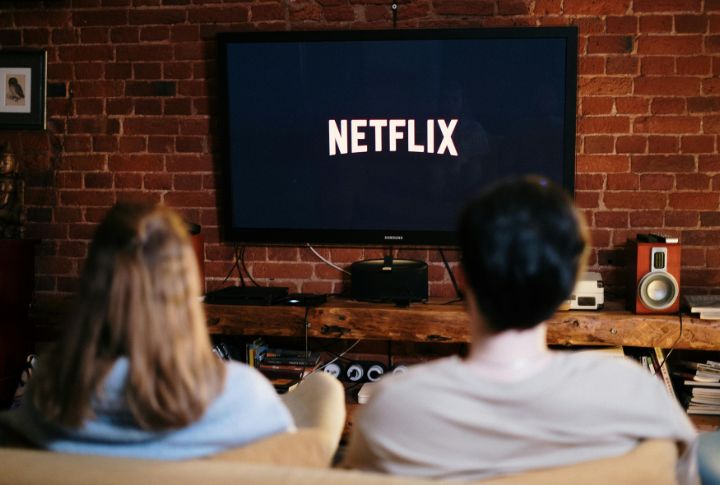
People love to pretend they judge actions fairly, but income colors everything. Someone takes a mental health day and reactions split entirely along salary lines. The double standard operates so smoothly that most people never notice they’re doing it. Identical behaviors get opposite labels depending on who’s involved. Here’s a look at common activities that society views through a frustratingly unequal lens.
Sleeping In Late On Weekdays

So, when a billionaire wakes up at 10 a.m., it’s “listening to their body’s natural rhythm.” But if someone working two jobs does the same? Suddenly, it’s lazy and undisciplined. Funny how extra sleep turns into “innovation” once there’s money in the bank.
Ordering Takeout

You’re too tired to cook, so you hit “order again.” If you are rich, that counts as self-care and a productive use of time. If you’re not, it’s poor planning and bad budgeting. Apparently, convenience stops being convenient once your income doesn’t come with a personal assistant or a shiny takeout hashtag.
Meditating Or Doing Nothing

Sitting quietly becomes mindfulness when you’ve got money in the bank. The wealthy get praised for taking mental breaks and resetting their energy. Poor people doing the exact same thing just look unemployed to everyone around them. Stillness only counts as self-care if your lifestyle already suggests success and intention.
Napping During The Day

The mid-day nap sits at the crossroads of biology and bias. It’s celebrated as a productivity hack for the wealthy but treated as a poor work ethic for everyone else. The truth is, fatigue is universal. Only money seems to determine if it’s acceptable.
Delegating Household Chores

Outsourcing cleaning at home tells two stories. To the rich, it’s smart time management; to those earning less, it’s seen as shirking responsibility. The task itself is unchanged, but social perception shifts dramatically depending on income.
Working From Home

Remote work looks identical on the surface, but gets judged completely differently. Executives enjoy modern flexibility and better balance. Hourly workers face suspicion about whether they’re really working at all. Both people sit at laptops answering emails. Still, the income level determines who gets trusted and who gets questioned constantly.
Taking Extended Breaks Between Jobs

Everyone needs a break sometimes, but language has its favorites. Call it a “sabbatical” and you’re exploring new horizons. Call it “unemployment” and you’re suddenly aimless. The same six months off turns from growth to failure depending on your job title and who’s listening to your story.
Going To Therapy

Mental health support helps everyone process struggles and build healthier patterns. Wealthy individuals investing in therapy show emotional intelligence and commitment to growth. Poor people seeking the same professional help often hear they’re being dramatic or making excuses for their situation. Healing shouldn’t require a certain tax bracket to be taken seriously.
Watching TV Or Streaming All Day

Funny how Netflix marathons double as therapy for some and proof of failure for others. You can watch the same series, yet your motivation gets rewritten by your paycheck. The screen doesn’t care who’s watching, but society sure does. Even rest comes with a reputation.
Taking Walks During The Day

Exercise clears your mind regardless of your bank balance. A poor person strolling through the neighborhood during work hours looks suspicious to passersby who assume unemployment or laziness. That same walk taken by someone affluent becomes a wellness routine that boosts productivity and creativity.
Owning A Pet For Companionship

Pet ownership now lives in the language of wellness, where “emotional support” meets lifestyle branding. But approval tends to follow economics more than empathy. A quiet evening with a dog or cat can mean balance or scrutiny, depending on who’s doing the relaxing.
Eating Pre-Packaged Meals

Meal kits are glamorous efficiency, while frozen dinners are a failure. Both involve plastic trays and minimal dishes, yet only one gets fancy branding. The food industry knows exactly how to sell convenience as long as you can afford the subscription.
Taking Time For Hobbies

A hobby can mean joy, recovery, or peace, but not everyone gets credit for it. When you paint or play guitar after work, it’s often called a distraction. Yet for those with money, the same pastime becomes creative restoration. Leisure, it seems, still needs luxury’s permission.
Reading Fiction

Although fiction and self-help both promise growth, society plays favorites. A CEO reading Hemingway looks “deep.” A cashier reading the same book looks “distracted.” The irony is that novels have always taught what manuals can’t, which is how to understand other people.
Taking Long Vacations

You plan a break to breathe, not to prove anything. However, perception doesn’t rest. Time off becomes a test of status rather than self-awareness. The same few days meant for recovery turn into commentary on ambition, like rest must earn permission before it’s valid.
Automating Tasks With Apps

There’s nothing lazy about working smarter, though opinions shift with job titles. Automating tasks or using productivity apps earns praise as “innovation” for managers but suspicion as “cutting corners” for hourly workers. While the tech is the same, approval seems reserved for those already sitting higher on the ladder.
Declining Overtime Work

If a corporate manager says “no” to overtime, they’re setting boundaries. On the other hand, if a warehouse worker does the same, they’ll be labeled as someone who is not a team player. So, the work-life balance is only admirable when your paycheck comes with a corner office.
Taking Time To Journal

Writing thoughts down helps process emotions and organize goals for anyone who tries it. Poor folks journaling might hear they have too much free time or should focus on finding better work instead. Successful people doing it are tracking their personal development and optimizing their mindset.
Attending Free Workshops Or Classes

Learning something new for free is called “resourceful” when done by someone successful. But when lower-income individuals attend free programs, it’s often framed as remedial or desperate. The same thirst for knowledge gets filtered through a lens of status.
Wearing Casual Clothes Daily

Time was when casual dress marked everyone as unprofessional, until Silicon Valley’s billionaires staged their hoodie revolution. Now, when Mark Zuckerberg or Steve Jobs sport everyday wear, it’s hailed as innovative style. Well, the same casual choices still brand low-wage workers as lazy and unmotivated.

